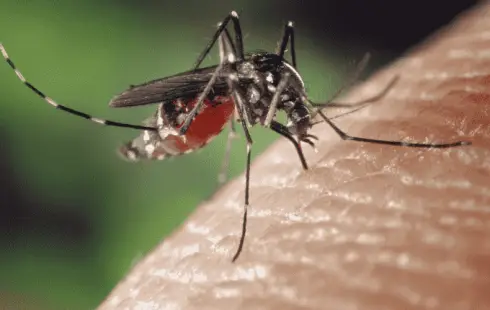
Fully Funded Scholarship Opportunity at the Bavarian International School for 2026-27
Section: News
 Dengue fever, traditionally viewed as a tropical disease, is increasingly spreading beyond southern regions. The Asian tiger mosquito, the primary carrier of the virus known as "bone crusher fever," has established a presence in Europe. Additionally, travelers are importing the dengue virus into Germany.
Dengue fever, traditionally viewed as a tropical disease, is increasingly spreading beyond southern regions. The Asian tiger mosquito, the primary carrier of the virus known as "bone crusher fever," has established a presence in Europe. Additionally, travelers are importing the dengue virus into Germany.
Global Surge in Dengue Cases: Record Outbreak in Brazil
The number of dengue cases is rising sharply worldwide, according to reports from the Tropical Institute. Notable examples include the Indonesian island of Bali and Brazil, which experienced its largest and most severe outbreak in history as of late March 2024. The National Ministry of Health in Brazil reported 1.9 million dengue virus infections since the beginning of the year.
Heavy rains and high temperatures in recent months are believed to have contributed to this increase, creating optimal conditions for the yellow fever mosquito (Aedes aegypti) to thrive. Climate change is also facilitating the spread of these mosquitoes to European countries.
Early Warning Service Raises Alarm Over Dengue in Southern Europe
The crisis early warning service A3M has expressed concerns about a rise in "autochthonous infections" of the deadly virus in Europe, urging heightened vigilance. "The situation in southern Europe is certainly worrying," said A3M analyst Marcel Conrad to the tourism portal fvw.de. "The combination of the vector mosquito, sufficient virus carriers in the population, and suitable climatic conditions creates an ideal environment for the spread of dengue fever."
According to the World Health Organization (WHO), outbreaks of dengue fever are recurrent, particularly in popular holiday destinations such as Croatia, Portugal, Spain, France, and Italy. Last year, Italy reported 82 cases, the highest number in Europe.
Continuous Dengue Infections in Europe: Understanding the Virus
The Robert Koch Institute (RKI) identifies the dengue virus as "the most common mosquito-borne human pathogen worldwide." The disease, transmitted by the bite of an infected Asian tiger mosquito, manifests primarily with flu-like symptoms appearing approximately three to 15 days after the bite. Symptoms include:
Dengue can be fatal, especially after a second infection. Severe cases involve persistent vomiting, rapid breathing, internal bleeding, a sudden drop in blood pressure, and shock. Consequently, vaccination against dengue fever is often recommended after recovering from an initial infection.
To prevent dengue fever, both locals and travelers should consistently use mosquito repellent during the holiday season. Wearing long clothing outdoors in vulnerable areas can significantly reduce the risk of mosquito bites. The risk of dengue infection is notably lower in air-conditioned rooms, as mosquitoes tend to avoid these environments.
In Bavaria, the Asian tiger mosquito is spreading, prompting cities to implement stringent measures to control its population and mitigate the risk of dengue transmission.
The increasing prevalence of dengue fever and its expansion into new regions underscore the urgent need for public health vigilance and preventive measures. As the virus continues to spread, awareness and proactive steps are crucial in protecting populations from this potentially deadly disease.

Section: News

Section: Arts

Section: Travel

Section: Arts

Section: Arts

Section: Arts

Section: Fashion

Section: Politics

Section: Fashion

Section: News
Both private Health Insurance in Germany and public insurance, is often complicated to navigate, not to mention expensive. As an expat, you are required to navigate this landscape within weeks of arriving, so check our FAQ on PKV. For our guide on resources and access to agents who can give you a competitive quote, try our PKV Cost comparison tool.
Germany is famous for its medical expertise and extensive number of hospitals and clinics. See this comprehensive directory of hospitals and clinics across the country, complete with links to their websites, addresses, contact info, and specializations/services.
Join us at the Kunstraum in der Au for the exhibition titled ,,Ereignis: Erzählung" by Christoph Scheuerecker, focusing on the captivating world of bees. This exhibition invites visitors to explore the intricate relationship between bees and their environment through various artistic expressions,...



No comments yet. Be the first to comment!